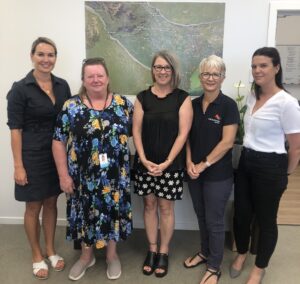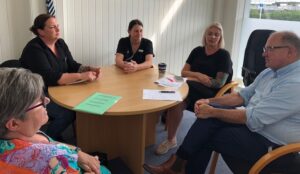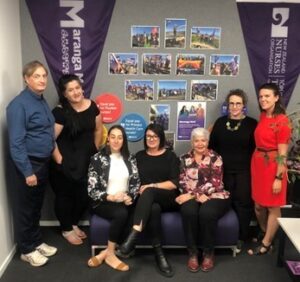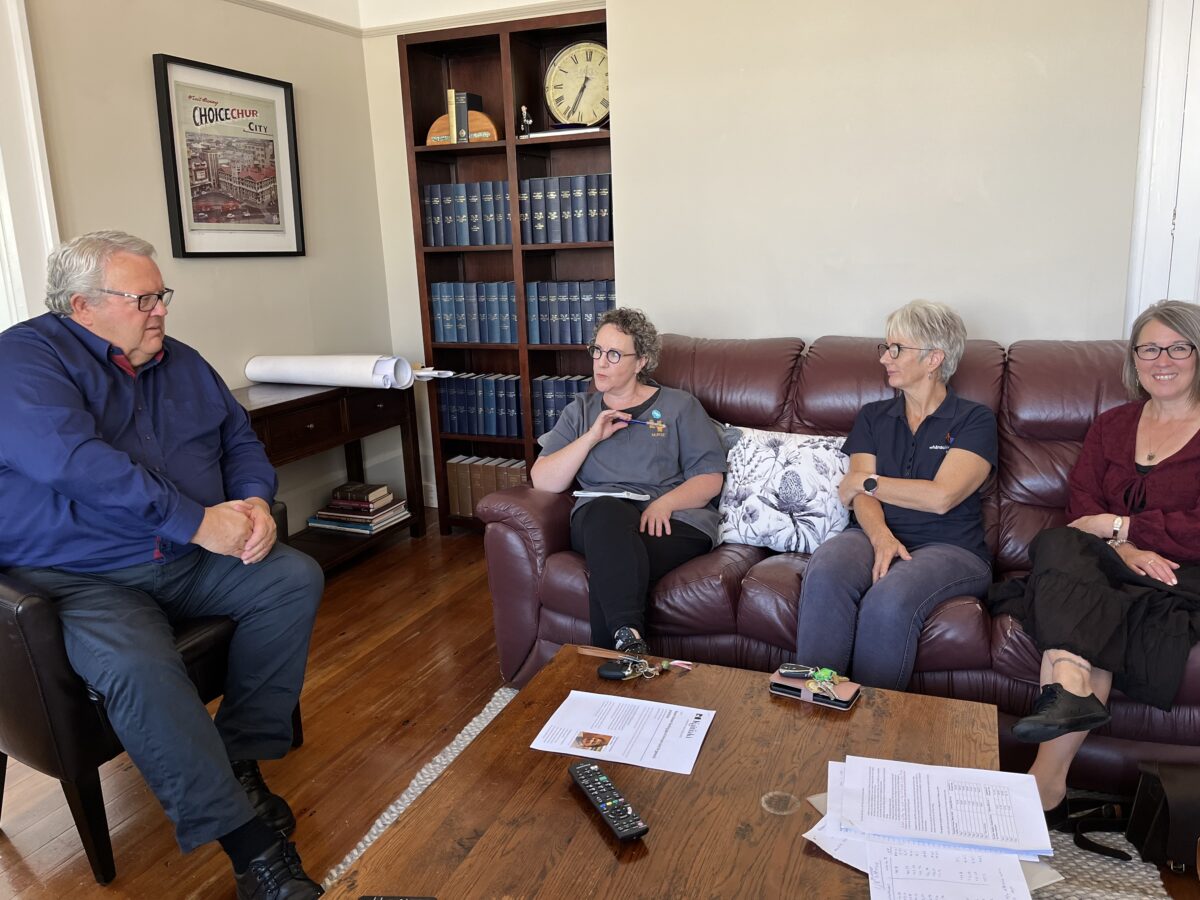On a bright sunny late February day in Christchurch, three NZNO delegates gathered outside the office of National list MP Gerry Brownlee.
Whānau Āwhina Plunket Karitane community worker Tracey Haughey, registered nurse (RN) Wendy Dawson and practice senior RN Annie Hofmeester had already cut their teeth with other local politicians and appeared relaxed about the impending visit.
Hofmeester has come during a break on her shift at one of the busiest GP clinics in Christchurch, Riccarton Clinic and After Hours, which she describes as a “mini-hospital”.
‘I feel like we just need to keep our voices heard so there is increased knowledge by the decision makers.’
Likewise, Dawson has come during a break in her work day, visiting parents of new babies, and families with high needs, while Haughey is fitting the visit in to a day off.
Primary health care members are moving into the political sphere as part of a larger battle to gain parity of pay and conditions with Te Whatu Ora-employed nurses.
In a first-ever collective show of activism, primary health care nurses will join members from all sectors at rallies across the motu for a national day of action on April 15.
Negotiations for a primary health care multi-employer collective agreement (PHC MECA) came to a standstill in November last year, with employer representatives saying an increase to pay by more than about 3 per cent was unachievable.
In February, the parties returned to the bargaining table, but a settlement has not been reached.

In January, with massive cost of living increases hurting, Whānau Āwhina Plunket members voted to accept a three per cent increase they had earlier refused. They are hoping a government funding boost will eventuate mid-year to achieve an increase that at least matches inflation.
Brownlee’s office is attached to a pub in a Tudor-style building in the leafy suburb of Merivale and the interior has an Olde English lawyerly vibe with polished floors and leather furniture.
The MP greets everyone with a handshake and the three delegates sit side-by-side on a lounge, while Brownlee sits in an armchair.
Soon the former minister for Canterbury earthquake recovery and foreign affairs, and former deputy leader of the National Party, is getting an overview of the complexities and inequities of New Zealand’s primary health system.
Hofmeester tells him of her 20-plus years of experience, the realities of nursing in a busy general practice and after hours clinic, and the pay she earns in comparison to hospital nurses employed by Te Whatu Ora.
“So, Te Whatu Ora, what’s that?” Brownlee asks.
Hofmeester replies faster than The Chase’s Mark, “The Beast”, Labbett – “old DHBs” – before swiftly reeling off the key numbers.

“So Te Whatu Ora is one employer with 35,000 nurses, primary health care is 3500 nurses, and 500 employers. In amongst the 500 employers, everyone is paying their nurses differently.”
Hofmeester stays on point by turning attention back to the reason for the visit.
“They get funding from the Government, which gives us $36 an hour, top rate.”
The to and fro continues at pace with Brownlee pressing for more detail, clearly intrigued by what he is hearing.
He wants to know the annualised pay rate ($76,000), how many years’ experience Hofmeester has (35), what her equivalent at Te Whatu Ora would get ($95,000), how much can nurses get paid in Australia (“all expenses paid, three months’ accommodation, three times the pay, bonuses . . . “).
The conversation turns to how primary health care is funded, and the group valiantly attempt to answer further questioning.
“It sounds like quite a messy system,” Brownlee concludes.
An independent report on the primary health funding system released last year described it as opaque, complex and inequitable, and “a serious deficiency in a core part of New Zealand’s health system”.
Dawson turns the conversation to Whānau Āwhina Plunket, and the fact the base rates of pay are now up to 20 per cent behind that of Te Whatu Ora members.
Brownlee says he still has his Plunket book.

Keen to update the minister, born in 1956, Dawson says staff are not able to see as many children, for as long, as they used to and they all work really hard.
” . . . but what we want is to be paid fairly.”
“Yeah, you’re a profession that requires dedication and empathy,” Brownlee responds.
” . . . and skill,” Dawson adds.
Brownlee wants to check on Whānau Āwhina Plunket rates, compared to Te Whatu Ora rates, and then he wants to know how they compare to teaching.
Haughey brings him back to the matter of health and says as a community health worker she is paid the equivalent to enrolled nurses at Te Whatu Ora.
Answering Brownlee’s blank expression, she says “Karitane nurse”.
“We’re currently 8 per cent behind – after a 3 per cent increase.”
“One of my colleagues works at a working man’s club every now and then and she can pull a pint of beer and gets paid more than a community health worker,” Haughey tells him.
Brownlee says it has been “extremely informative”, and says he’s pleased to have met the delegates.
Sensing the MP now has some understanding of their predicament, Haughey asks him for advice.
Brownlee says meeting MPs is a good idea because he’s learned a lot.
“The challenge for all MPs is there are more than 50 different portfolio areas . . . and to have detail in each of those is pretty hard, but one thing we do know is there’s a nursing shortage.

“One question that comes into my head is . . . what does the nursing profession save the health system on an annual basis?”
To which Dawson says: “Lives!”
Brownlee says having numbers to demonstrate how regular diabetes checks could save someone from going to hospital – and the huge cost of that to the health system.
“I think those numbers help because in the end it comes down to a numbers game, can we afford it, what’s possible.”
Ending the meeting, Brownlee says it has been “extremely informative”, and says he’s pleased to have met the delegates.
The delegates said the questions Brownlee asked showed he was listening and engaged.
‘I felt that he got the reason why we had come to talk to him and felt encouraged to keep talking about it.’
Dawson said it was always hard to know what MPs would do with the information they gained from the visits.
“I feel like we just need to keep our voices heard so there is increased knowledge by the decision makers.”
Haughey said she felt that Brownlee was “open and asked questions”, which was a good result.
“I felt that he got the reason why we had come to talk to him and felt encouraged to keep talking about it.”




